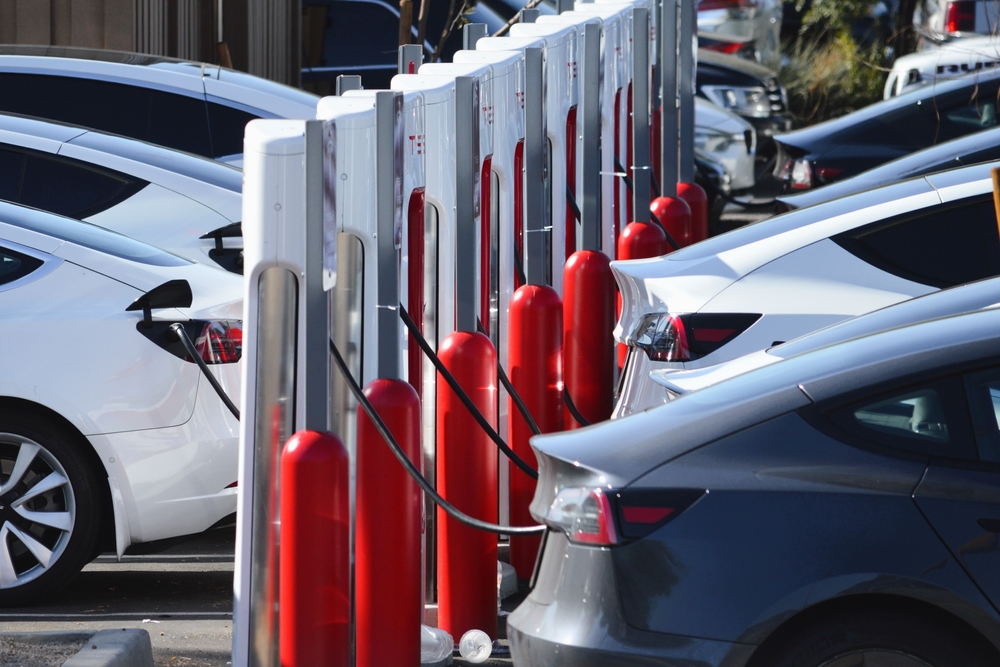View all of our Compliance Solutions
EV batteries are one of the many things that may seem daunting to drivers considering the transition from a combustion engine vehicle. How long can they expect these batteries to last?


Know your vehicle
Whilst it is inevitable that EVs are the future of transportation, drivers do have some reservations. For example, the range of an electric car has often been questioned when compared to a combustion engine vehicle. In addition to this, drivers are concerned about the lack of charging infrastructure.
However, these concerns may die out in the coming years. Battery technology is improving each year, meaning vehicles can travel even further. New charging stations are being implemented, with a huge increase in the number of charge points being seen each year.
Speaking of batteries, however, that’s something else that drivers will need to get used to. What is the life of an EV battery, and can they be replaced?
Electric vehicles use lithium-ion batteries. This is a type of rechargeable battery that has many applications. For example, they are used in mobile phone, laptops and tablets due to their ability to provide consistent, portable electricity.
It’s their recharging capability that makes them ideal for electric vehicles.
Rather than using a single battery, EVs use a collection of thousands of lithium-ion cells.
Charging causes chemical changes within the battery. When the vehicle is in motion, the chemical changes are reversed – that’s what generates the electricity needed to power the vehicle.
Just like your phone or laptop battery, however, the capacity of your vehicle’s battery will decline over time.
The repetitive cycle of charge (when your vehicle is plugged in) and discharge (when you drive the vehicle) have an impact on the amount of charge the battery can hold. In fact, approximately 20% of your battery’s capacity will be lost after approximately eight years of daily use.
Most estimates put the lifespan of an EV battery at anywhere between 10-20 years depending on a number of factors. The lifespan of these batteries, however, is only going to increase as technology advances.
Given that you can expect your vehicle’s battery to last at least 10 years, drivers should not add the lifespan of the battery to their list of reservations about transitioning to an EV.
When the capacity of your EV battery does eventually stop working efficiently, what does this mean? Can you get a replacement, or is the vehicle set for the scrap heap?

Luckily, many manufacturers provide a warranty. The length of this warranty can vary, but tend to be around 8-10 years or around 100,000 miles. This means that if something went wrong sooner than expected, there’s a chance your warranty will cover any battery replacement.
Unfortunately the battery is one of the most expensive components in an electric vehicle. Replacing it without a warranty won’t come cheap. Currently, the average cost of replacing a battery is roughly £4,000.
Whilst that seems drastic, there is hope! Just 5 years ago, the same battery replacement would have cost just over £7,000. If this trend continues, the cost of replacement might be quite reasonable by the time the 2030 ban comes around and EV adoption in the UK is more widespread.
Whilst there is nothing you can do to fully halt the depreciation of your battery’s capacity, there are steps you can take to encourage a longer life!
For example, you should avoid leaving your vehicle fully charged or at a low charge for an extended period of time. When your battery is charged around 50%, this is actually putting the least amount of strain on the battery. Therefore, if you know that your vehicle isn’t going to be used for a few days, consider waiting to charge it at a later date. Or, if your battery is low, you could charge it to 50%, and finish charging next time you come to use the vehicle.
Using fast or rapid chargers can also degrade your battery capacity if used frequently. Of course, they are a necessity when making long journeys, but it’s worth keeping this in mind if you want to add some years to your battery’s lifespan.
Whilst there’s not much that can be done about the temperature, extreme heat or cold can also put strain on your battery. Parking in the shade in summer and indoors in the winter could make the world of difference in this regard.
Whilst yes, your battery may lose capacity over time, this does not negate the many benefits of electric vehicles.
More and more drivers and businesses are going to be using EVs in the coming years. Fears surrounding charging and range anxiety are slowly being put to rest.
Maybe it’s time for you to get behind the wheel of an electric vehicle?
For fleet managers considering the transition, it is natural to be worried about how EVs may affect your finances. You should be doing everything you can to minimise costs, and this is made possible with the Shell Electric Vehicle Fuel Card. You can save 2p per kWh, access 7,500 charge points across the UK and even use it to pay for regular fuel.
Get in touch today, and we’ll see how we can ease your transition to electric vehicles.